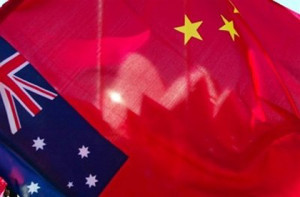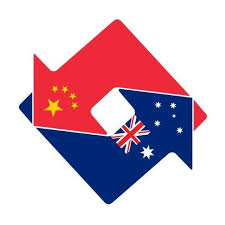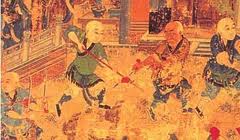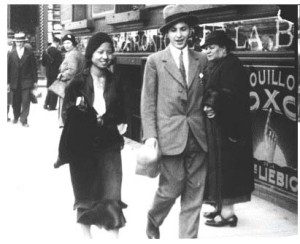我的故事 ~ 25. 一半来自澳洲,一半来自中国
 “既有东方的气质和教育,也有西方的教育和背景。这也是一种优势吧。”
“既有东方的气质和教育,也有西方的教育和背景。这也是一种优势吧。”
我是2003年8月来的澳洲。
和很多80后出生的人一样,高中毕业后选择了出国留学。虽然我当时的高考分数也可以进入大学,但是一个二本的学校,恐怕毕业后在国内找不到理想的工作。
选择西澳作为留学地是我父母做的决定。我的父亲有个朋友在西澳工作,说是可以照顾我。直到现在,我都可以清楚地记得离开家的时候,我的情绪是多么低落。我是家里的独子,刚刚过完十七岁生日,从来没有离开过父母,孤身一人去一个离家一万多公里的地方,让我人生中第一次体会到什么叫做举目无亲的滋味。虽说有父亲的朋友照顾,但是家的感觉却再也没有了。
我最初的学校远在Fremantle,而我的住所却在珀斯最北边,每天都要换两趟公车、两趟火车再走路去上学。现在回想起来,虽然当时每天过得都非常辛苦,但我却因此收获了很多好朋友。有在火车上结识的,也有在学校认识的。感觉在这里交朋友还是很简单的。所以我总认为和中国那些读2+2课程的同龄人相比,我最大的优势就是一年的读书时光让我对这边人的沟通方式和工作方式有了不少了解,可以比他们多认识些好朋友,而且不仅仅是同中国人和亚洲人交朋友,我已经可以完全融入澳洲的圈子,他们成了我一起学习和生活的好伙伴,等真正上大学的时候更加不会感觉到那是一个完全陌生的环境。初来乍到时的那种“人生地不熟”之感终于消失了。
一年之后,我正式进入大学。不过没想到的是,生活刚刚开始适应,其他问题又来了——大学的电脑科技专业,已枯燥到让我实在无力再继续。和父母交流之后,我在大二时改读了商科、会计和金融,这让我如释重负,空余的时间也渐渐多了起来。和大多数留学生一样,我开始出去打工。我喜欢尝试不同的东西。这期间,我做过服务生,洗过碗,后来也给人修过电脑,做过税务会计,送过报纸,做过问卷调查,卖过东西,再到后来给人做帐,现在在做财务会计。在这个过程中,我深刻体会到,打工一是会给你一份收入,让你在收入方面会独立些,会懂得珍惜,起码不会浪费你的金钱。二是在这个社会上人的主要目的是创造价值,这也是融入社会的一种方式。工作的时候,大概几个星期之后,就可以和一起工作的同事成为朋友,工作时一起认真工作,休息时作一些交流,一起出去玩,还是蛮喜欢的。唯一感觉挺委屈的一件事是有一年我生日,生日那天正好是星期六,工作完已经十一点半了,当时坐公车回家,公车上只有一个人。就是我自己,然后给我妈打电话,说“妈”,电话那边说“哎,儿子生日快乐”,问我干嘛呢,是不是出去跟同学一起庆祝呢,我说没有,今天星期六,我刚做完工作正一个人坐公车在回家的路上呢。现在想想确实是很辛苦,但是当时既然被安排了工作,就应该去担当,就应该去努力工作,并且这边的人也对守时、负责任非常看重。在此过程中我也学到许多东西。
几年的读书、打工生活,让我经历了很多,当我开始在珀斯一所大学的财务部工作的时候,我更是经历了我生命中最重要的事——我遇到了我的未婚妻。 Read more
My Story ~ 26. Keep Your Nose To The Grindstone, You Will Be Successful In The End
 “Take it easy, young people, you have so many opportunities ahead of you; keep trying and seize the chance,I am sure you will succeed once in your life time.”
“Take it easy, young people, you have so many opportunities ahead of you; keep trying and seize the chance,I am sure you will succeed once in your life time.”
A young man born post 1990s came to Australia after graduating from high school. In the five years after he arrived in Perth, he went through education, work, transferred from one school to another, and changed majors a few times; he got to know life better because of his own experience. One can sense the vitality, knowledge and drive of the younger generation after talking with him. He quickly adjusted to the life here, or to be more precise, it’s not that he has been fitted into the Australian society; it is the Australian life style that has become part of his heart and soul.
I was born in 1991 and was called the “post-90s generation” in China. My hometown is in Jianhu County, Yancheng, Jiangsu Province. I attended high school in China. I still clearly remember those days when I and my schoolmates worked so hard for the university entrance examination. Well, during those days, I went to sleep at 3 a.m. and got up at 5 a.m. in the morning, only 2 hours sleep at night. Because of my families’ pressure I was under a great deal of stress. After that experience, all other hardships I faced later in life were not difficult to handle. With many relatives working in government positions, my parents actually hoped that I could work for the government too, just like them. So I decided to pursue politics and applied for law school. But I was not accepted by the university because some of my marks were a little low. Though there were other ways of getting into a law school by using the “Guanxi” of some relatives and paying some money, my parents gave up in the end because the cost would be the same as the costs of going abroad. So at the crucial point of university education, I ended up in this strange country.
Looking back, being unable to study at a Chinese Law School could be part of my destiny. My English was good and people used to make jokes about me by saying: “You are destined to go abroad with long hair all over you just like a foreigner.” My mom once went to a fortune-teller and was told that I would go overseas that year. Well, everything turned out to be true and I went abroad in 2009.
There were some incidents before we chose Australia. My father wanted me to go to Europe because my major was in literature which probably would help me to do economics or archaeology. But when it was time to make the final decision, a great recession had happened in Europe while Australia actually was unaffected by the global financial crisis. So we changed our destination from Europe to Australia. We didn’t receive any feedback about my visa application, so we were afraid that I had been rejected by the Australian immigration department. Thinking that the second pathway was also blocked, we went back to the agency which suggested Russia. Well, to study petroleum at a famous oil school at a Russian university seemed a good choice, so we decided to apply for Russia. Just as we started to prepare the materials, I got my visa to Australia. Thus, after all those big and small incidents, I came to Perth on 3rd May, 2009. Read more
我的故事 ~ 26. 锲而不舍,终能成功
 “别着急,慢慢来,因为年轻,前面肯定还有很多机会。只要不停尝试,抓住机会,总有一次会成功。”
“别着急,慢慢来,因为年轻,前面肯定还有很多机会。只要不停尝试,抓住机会,总有一次会成功。”
小伙子90后,高中毕业就来到珀斯,5年时间,经历了上学,打工,换学校、换专业,同时也以自己体验与思考,从他身上,可以感受到新一代年轻中国人的活力与思考,他很适应这里的生活,或许准确的说,并不是他融入了澳洲的生活,而是澳洲融入了他的生命和经验。
我是1991年出生的,在国内被称为90后,老家是在江苏省盐城市建湖县。在国内我一直读到高中,高考前拼命的样子到现在还记忆犹新。那时候基本上每天三点睡觉,五点就得起床,家里所有人都围着高考这件事打转,很辛苦,压力很大。当然经过这么一遭,后来的辛苦也就轻易扛过去了。家里亲戚有不少是公务员,所以父母也一直希望我能从政,于是高考就报考了政法学院,但高考结果出来后发现分数差了几分,虽然在当时也有机会找关系花钱能上,不过父母算了一下,花的钱都足够出国留学的花费了。就这样,在高考这样一个重要的关卡,我被这一系列偶然的事情推向了一个陌生的国度。
其实回头想想,这种偶然似乎包含着冥冥中的暗示,我从小到大英语都学得很好,那时候还有人跟我开玩笑说:“一身长毛就是出国的命”,小时候我妈帮我算命也说我这年该出国,没想到玩笑变成了现实,2009年,真出国了。
选择来澳洲也有一系列阴差阳错,最开始我爸想让我去欧洲,因为高中学的文科,所以打算送我去欧洲学经济学或者考古,但08年真的开始做决定的时候却发现当时欧洲经济很不景气,而澳大利亚发展得不错,于是就打算送我来澳洲,但送出去的签证材料等了将近一个半月还没消息,当时很担心是被拒签了。这条路眼看着走不通了,我就去找中介,中介给出的建议是去俄罗斯,到普京的母校莫斯科的一所学院学石油,在无奈之时又开始准备去俄罗斯的材料。正在这时,澳洲的签证下来了,就这样,经历了大大小小的波折之后,终于尘埃落定,在2009年5月3号,来到了珀斯。
然而求学之路并非一帆风顺,先是在泰勒读预科,准备到西澳大学学工程,但好像上次高考的倒霉劲还没过去,考完之后就差一分,没办法,就去了科廷,但心里很不甘心。不过因为科廷有一年的冻结期,就在科廷呆了一年,又通过了西澳大学的考试,这才成功转入西澳大学读大二。专业的选择也是屡经波折,在科廷头半年读采矿,第二学期却没有开,不得不选择了机械工程,转到西澳大学,读的是机械方面的机艺,但不管如何,结果还是很圆满的。 Read more
My Story ~ 我的故事 ~ Acknowledgement ~ 参加编写人员
 Story No. 10 by Wang Yi, University of Western Australia – 王毅,西澳大利亚大学
Story No. 10 by Wang Yi, University of Western Australia – 王毅,西澳大利亚大学
Story No. 5 & No. 8 (Co.) by Liang Fen, University of Western Australia – 梁芬,西澳大利亚大学
Story Nos. 1, 11 & 19 by Liu Zhonghua, Changchun Guanghua University – 刘忠华,长春光华学院
Story Nos. 24, 15 & 26 by Guo Wenying, Zhejiang University – 过文英,浙江大学
Story Nos. 3, 4 &25, by Ji Cheng, East China Normal University – 季承,华东师范大学
Story Nos. 6, 7 & 9, by Niu Hongmei, Jilin Sports University – 牛红梅,吉林体育学院
Story No. 2, by Ma Huixia, Zhejiang University – 马慧霞,浙江大学
Story Nos. 8 (Co.), 14 & 22, by Xia Li, Liaoning Petrochemical University – 夏丽,辽宁石油化工大学
Story Nos. 12, 17 & 20, by Li Muzhi, Zhejiang University – 李牧之,浙江大学
Story No. 13, by Zhang Wei, University of Western Australia – 张巍,西澳大利亚大学
Story No. 16, by Chen Hong, China Jiliang University – 陈红,中国计量大学
Story Nos. 18 & 23 by Wang Huan, Zhejiang University – 王欢,浙江大学
Story No. 21, Li Wei, Chengdu Sports University & Wang Zhenyu, East China Normal University – 李威,成都体育学院;王振宇,华东师范大学
Interests And Difficulties In Understanding Chinese Culture: What To Prepare For When Communicating With Cultural Others
Abstract
Because of the long history and richness of civilization in China (Leung, 2008; Liu, 2009; Hu, Grove, and Zhuang, 2010), as well as the complexity and diversity of Chinese culture in mainland China and in the Chinese community worldwide (The Chinese Culture Connection, 1987; Fan, 2000), the task of designing an introductory course on Chinese culture for Westerners presents certain difficulties (Luk, 1991; Fan, 2000). While the content of a comprehensive course on Chinese culture remains to be decided, the present study explores a 12-week introductory course on four areas of Chinese culture. It was delivered to 16 Irish students who were doing a degree in Intercultural Studies. Each participant was asked to write a 500-word reflective journal entry every two weeks and an essay of 2,000–2,500 words at the end of the course.
The study aims to find out which area(s) and topic(s) might be of interest to or potential obstacles for Irish students in future participation in intercultural dialogue with Chinese people. Using the software Wordsmith Tools (Scott, 1996), the study identifies both the area and the sub-topic within each area that are of greatest interest yet previously unknown to Irish students.
The results show that the section on “love, sex, and marriage in China” was very well received and the most discussed topic in their journals and essays. The participants demonstrated fascination with the changing role of women in Chinese culture and identified shared ground in terms of marriage choices in both Irish and Chinese societies, which could help them to develop a deeper understanding of Chinese society and participate in intercultural dialogue from this perspective. A number of topics, such as martial arts films, the urban/rural divide, loss of face, etc., can be employed as prisms through which students can explore and understand elements of Chinese culture and its evolution over time.
The understanding of “face” in Chinese culture is perceived by the participants as being of great importance in intercultural and interpersonal communication, which could undoubtedly support engagement in open and respectful exchange or interaction between the Irish and Chinese. Interestingly, the participants indicated that it is difficult to understand that the use of linguistic politeness could lead to the speaker being perceived as “powerless” in Chinese society, which could mean that not being aware of this might lead to miscommunication between individuals with different cultural backgrounds. In general, the findings presented in this chapter may have significant pedagogical implications for teachers and students of intercultural communication, but may also be of interest to those with a practical involvement in intercultural dialogue. Read more
The History And Context Of Chinese~Western Intercultural Marriage In Modern And Contemporary China (From 1840 To The 21st Century)
Table of Content
Abstract
Chapter One – Introduction
Chapter Two – An Intellectual Journey: The Theoretical Framework
Chapter Three – Mapping the Ethnographic Terrain: The Methodological Framework
Chapter Five – The Process of Chinese-Western Intercultural Marriage in Contemporary China
Chapter Six – Why do they marry Westerners? Motivations and Resource Exchanging in Chinese-Western Intercultural Marriages
Chapter Seven – Conflicts and Adjustments in Chinese-Western intercultural Marriage: A Cultural Explanation
Chapter Eight – Epilogue
Bibliography
Appendix I: Interview Questions Guide
Appendix II
Abstract
Intimate relationships between two people from different cultures generate a degree of excitement and intrigue within the couple due to that very difference, however this also brings its own challenges. Intercultural marriage adds an extra set of dynamics to relationships. Although the Chinese culture is very different from Western culture, individuals from both nevertheless meet and fall in love with each other. The existence of intercultural marriages and intimacy between Chinese and Westerners is evident and expanding in societies throughout both China and the Western world. This thesis aims to present a true picture of Chinese-Western Intercultural Marriage (CWIM) with a focus on the Chinese perspective.
By employing a three-dimensional, multi-level theoretical framework based on an integration of theories of migration, sociology and gender and adopting a qualitative research paradigm, the main body of this study combines three theoretical approaches in order to explore CWIM fully using a panoramic view. The first part of the study is conducted from a macro-level perspective. It provides a historical review of intercultural marriage and transnational marital systems in Chinese history from the modern to the contemporary era through a discussion of the different characteristics of CWIM. The context and background of Chinese intercultural marriages in modern and contemporary China are also reviewed and analysed, such as the related regulations, laws, governmental roles, and so on.
The second section is conducted from a middle-level perspective. On the basis of the study’s fieldwork, the demographic characteristics of the respondents are first disclosed, and different patterns are identified as occurring in CWIM. The approaches to and motivations of CWIM are examined, and a framework of CWIM Push-Pull Forces and a model of Resource Exchanging Layers are established to explain how and why Chinese people have married Westerners. The exchanges and Push-Pull force components operating in Chinese-Western intercultural marriages are also discussed.
The third section offers a micro-level examination of the research, and it moves on to discuss the family relations in Chinese-Western intercultural marriage, particularly with the entrance of a member of a different culture into the Chinese familial matrix. This part of the study focuses on cultural conflicts, origins and coping strategies in Chinese-Western intercultural marriage with an emphasis on the experiences of Chinese spouses. Five areas of marital conflicts are revealed and each area is analysed from a cultural perspective. The positive functions of conflicts in CWIMs are then explored. The six coping strategies and their frequencies of usage by Chinese spouses are further examined.
The final chapter will summarise the points examined previously and will unravel the factors underlying CWIM by recapitulating the symbolic significance, social functions and gender hegemony represented in Chinese-Western intercultural marriage. In this way this study will provide more than an anecdotal description of Chinese-Western Intercultural marriage, but will present a profound analysis of the forces underpinning this cross-cultural phenomenon.
Key Words: Chinese-Western Intercultural marriage, History, Cultures, Motivation, Exchange, Marital Choice, Conflicts.
List of Abbreviations
CCP – Chinese Communist Party
CCW – Chinese Civil War
CH – Chinese Husband
CPC – Communist Party of China
CHWW – Chinese husbands & Western wives
CW – Chinese Wife
CWIM – Chinese-Western Intercultural Marriage
CWWH – Chinese wives & Western husbands
DIL – Daughter in Law
EU – European Union
FAO – Food and Agriculture Organization of the United Nations
FS – Foreign Spouses
IC – Intensity of Conflict
KMT – Kuomintang (Chinese Nationalist Party)
LS – Local spouses
MIL – Mother in Law
MM – Marital Migrants
PRC – People’s Republic of China
ROC – Republic of China
TP – Third Parties Records
USSR – Union of Soviet Socialist Republics
VC – Violence of Conflict
CWWH – Marriage of Chinese Wife and Western Husband
CHWW – Marriage of Chinese Husband and Western Wife
WPA – Western Physique Attraction





